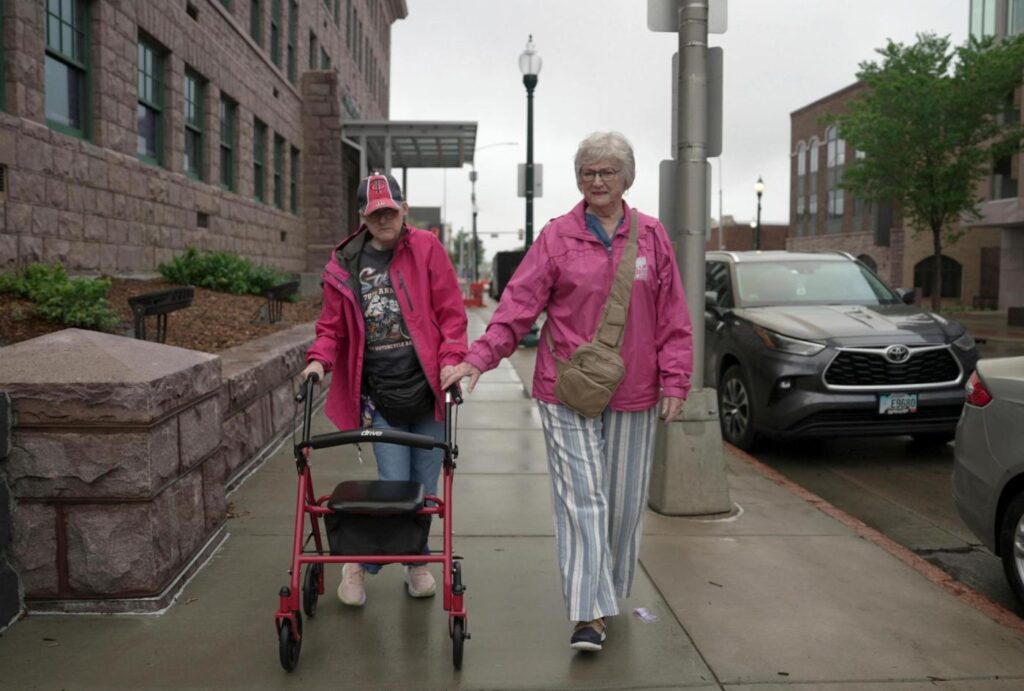In the era before widespread vaccination, diseases like measles, polio, and whooping cough claimed countless lives, leaving a trail of devastation in their wake. These illnesses were so pervasive that by 1900, nearly one in five children in America did not survive past their fifth birthday. Today, as vaccine hesitancy rises, these preventable diseases are making a troubling comeback, bringing painful memories to families who have suffered their consequences firsthand.
Vaccines have been a cornerstone in the fight against infectious diseases, virtually eliminating scourges such as polio and measles over the past century. However, skepticism fueled by misinformation and anti-vaccine activism is threatening these public health achievements. Dr. William Schaffner, an infectious disease expert at Vanderbilt University Medical Center, explains,
“This concern, this hesitancy, these questions about vaccines are a consequence of the great success of the vaccines – because they eliminated the diseases. If you’re not familiar with the disease, you don’t respect or even fear it. And therefore you don’t value the vaccine.”
Personal Stories of Loss and Advocacy
Rubella’s Lasting Impact
Janith Farnham’s life was forever changed when she contracted rubella during her pregnancy, resulting in her daughter Jacque being born with congenital rubella syndrome. This condition led to numerous health challenges for Jacque, including hearing impairment, heart defects, and intellectual disabilities. Janith recalls the immediate signs that something was wrong, as Jacque did not respond to sounds and required heart surgery at just four months old.
Despite the challenges, Janith dedicated herself to helping Jacque thrive, drawing on her experience as a special education teacher. Today, Jacque lives in an adult residential home, and they share a close bond, meeting several times a week. Janith’s experience fuels her frustration with vaccine hesitancy, as she believes that young people today are making selfish choices by not vaccinating their children.
“I know what can happen, and I just don’t want anybody else to go through this,” she says.
The Deadly Consequences of Delaying Vaccination
Patricia Tobin’s sister Karen was just six years old when she succumbed to measles in 1970. Despite the availability of a vaccine, it was not required for school attendance, and their mother did not prioritize it. A measles outbreak soon followed, and Karen fell gravely ill, ultimately dying from encephalitis. Tobin remembers the heartbreak of losing her sister and is troubled by the current complacency towards measles vaccination.
“I’m very upset by how cavalier people are being about the measles,” Tobin said. “I don’t think that they realize how destructive this is.”
Polio’s Lingering Effects
Lora Duguay’s battle with polio began at the age of three, leaving her paralyzed and isolated in a hospital ward. Despite initial recovery, she later developed post-polio syndrome, a neuromuscular disorder that gradually worsened her condition. Today, Duguay channels her energy into art, finding purpose and expression through painting. Her story is a testament to the long-term consequences of diseases that vaccines have nearly eradicated in the U.S.
The Tragic Loss to Whooping Cough
Katie Van Tornhout’s daughter, Callie Grace, was just 37 days old when she died from whooping cough. Born prematurely but healthy, Callie’s condition deteriorated rapidly, leaving her parents devastated. Van Tornhout now advocates for childhood immunization, sharing her story to prevent others from experiencing similar heartbreak.
“It’s up to us as adults to protect our children – like, that’s what a parent’s job is,” Van Tornhout said. “I watched my daughter die from something that was preventable … You don’t want to walk in my shoes.”
The Challenge of Vaccine Hesitancy
The resurgence of these diseases highlights the critical importance of maintaining high vaccination rates. According to experts, most states are currently below the 95% vaccination threshold needed to protect communities from outbreaks. This decline is partly attributed to misinformation, such as the discredited study linking the MMR vaccine to autism, which has fueled vaccine skepticism.
Dr. Schaffner emphasizes the need for public education and policy measures to counteract vaccine hesitancy. He points out that the success of vaccines has ironically led to their undervaluation, as the diseases they prevent are no longer part of the public’s lived experience.
“Herd immunity keeps everyone safe by preventing outbreaks that can sicken the vulnerable,” Schaffner explains.
Looking Forward
As families like the Farnhams, Tobins, Duguays, and Van Tornhouts continue to share their stories, they hope to remind the public of the devastating impact these diseases can have. Their experiences underscore the importance of vaccines in safeguarding public health and preventing needless suffering.
The path forward involves not only addressing vaccine hesitancy but also reinforcing the collective responsibility to protect the most vulnerable among us. As these families advocate for immunization, they carry the hope that future generations will be spared the pain they have endured.
About The Author
 Jennifer Aniston to Star in Series Based on Jennette McCurdy’s Memoir
Jennifer Aniston to Star in Series Based on Jennette McCurdy’s Memoir Edifier Unveils MR5 Studio Monitor with Advanced Tri-Amped Crossover
Edifier Unveils MR5 Studio Monitor with Advanced Tri-Amped Crossover Delirium Prevalence in ICU Stroke Patients Highlights Critical Care Challenges
Delirium Prevalence in ICU Stroke Patients Highlights Critical Care Challenges Ukrainian Strike on Russian Missile Facility Escalates Tensions
Ukrainian Strike on Russian Missile Facility Escalates Tensions Fox News Channel Surpasses Major Networks in Second Quarter Ratings Surge
Fox News Channel Surpasses Major Networks in Second Quarter Ratings Surge